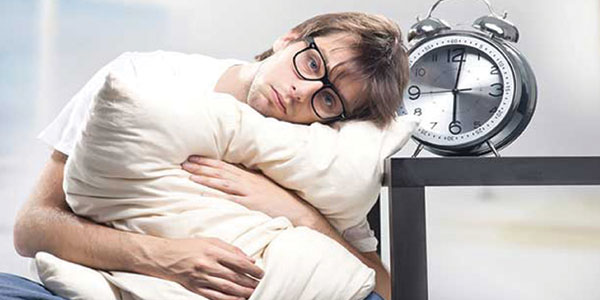
La falta de sueño puede afectar el sistema inmune del cuerpo, lo que significa que si uno no duerme lo suficiente, se puede enfermar más fácilmente, según los investigadores.
De acuerdo con un estudio de la Clínica Mayo, durante el sueño, el sistema inmune libera proteínas llamadas citosinas, que ayudan a combatir infecciones o inflamación. Además, si una persona no duerme lo suficiente, bajan los anticuerpos y las células, y de esta manera la persona no puede combatir las enfermedades ni las infecciones tan bien como si durmiera bien por la noche.
Los adultos deben dormir entre 7 y 8 horas al día. Las investigaciones han demostrado que si los adultos duermen menos de 5 horas por noche, esto disminuye considerablemente su habilidad para combatir infecciones.
“El no dormir afecta fundamentalmente su salud física”, dijo Aric Prather, profesor asistente de psiquiatría en la Universidad de California, San Francisco.
A las personas que deseen dormir más por la noche se les aconseja evitar comer mucho a altas horas del día, evitar la cafeína y el alcohol muy de noche y evitar tomar mucha agua antes de irse a acostar. También se les motiva a meditar y a la relajación. A toda persona que tenga problemas para conciliar el sueño se le aconseja consultar con un médico para desarrollar un plan de tratamiento.
Lack of sleep can cause illnesses and infections, research shows
By Chara
A lack of sleep can affect the body’s immune system, meaning that if one doesn’t get enough sleep, one can get sick easier, according to researchers.
According to a Mayo Clinic study, during sleep, the immune system releases proteins called cytokines that help fight infections or inflammation. In addition, if a person doesn’t get enough sleep, then antibodies and cells are reduced; thus, a person can’t fight illnesses or infections as well as he or she can with a good night of sleep.
Adults should sleep between seven and eight hours a day. Research has shown that if adults sleep less than five hours a night, their immune system’s ability to fight infections decreases considerably.
“Not getting sleep fundamentally affects your physical health,” said Aric Prather, assistant professor of psychiatry at the University of California, San Francisco.
People who want to get more sleep per night are advised to avoid large meals late in the day, avoid caffeine and alcohol late at night, and avoid drinking a lot of water before going to bed. They’re also encouraged to meditate and relax. Anyone who has trouble falling sleep is advised to consult with a doctor to develop a treatment plan.










